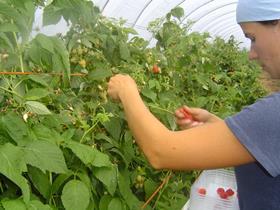
Freedom of movement between the UK and the EU will end in March 2019, it has been announced, with the government launching its first major investigation into migration from the EU.
Speaking on BBC Radio 4’s Today programme, immigration minister Brandon Lewis also said the government intended to reduce net migration to the tens of thousands – a promise repeated by the Conservatives since they took office in 2010 – but he did not pledge to achieve this by the end of the current parliament.
“Free movement of labour ends when we leave the European Union in the spring of 2019,” Lewis said. “I’ll be very clear about that.”
The minister’s comments seem to contradict reports from senior cabinet sources in the Guardian that ministers were committed to a post-Brexit transition period that could see free movement continue for up to four years after Britain formally leaves the EU.
Assessing EU migrants’ contribution
Lewis’s announcement coincided with the news that the government has commissioned a major investigation into the contributions and costs of EU migrants in the UK – more than a year after the Brexit referendum took place.
The analysis, to be carried out by the independent Migration Advisory Committee, will weigh up the economic and social benefits of migrants from EU countries, with the aim of informing a new immigration system.
The committee, commissioned by home secretary Amber Rudd, will not report back until September 2018 – just seven months before Britain is supposed to officially leave the EU in March 2019.
Industry reaction
Reacting to the news, Jack Ward, chief executive of British Growers, said: “It’s taken a very long time for the realisation about the importance of migrant labour to find its way onto the government agenda.
“It’s helpful that the government has now recognised the significance of migrant labour but the ongoing uncertainty about how the government plans to deal with future labour availability is having an impact on investment decisions now.”
The government has promised an implementation period after Brexit to avoid a “cliff edge” for employers as the new rules come into force, but Lewis said it was a “simple matter of fact” that EU freedom of movement would not apply during this phase.
Uncertainty over investment
The announcements are likely to worry businesses in the fresh produce trade, which now have less than two years to prepare for the end of free movement of labour.
Ward complained that the government’s failure to give the fresh produce industry assurances on labour supply have already damaged investment.
“Investment decisions are on hold pending an outcome on achieving a secure supply of labour for the future,” he said. “That is not good for the UK economy and we need a fairly urgent resolution to this issue otherwise we’re just going to go backwards.”
Asked what kind of labour provision scheme he would like to see the government introduce, Ward added: “I’m deliberately not saying we want the reintroduction of the SAWS scheme because actually I think we need to go back to the drawing board.
“The requirements are very different now – the season is much longer than it used to be and the whole fresh produce industry is much more complicated. We need to sit down and make sure we’ve got a system that delivers the right volume of workers, the right quality, at the right time, with the right controls in place.”




